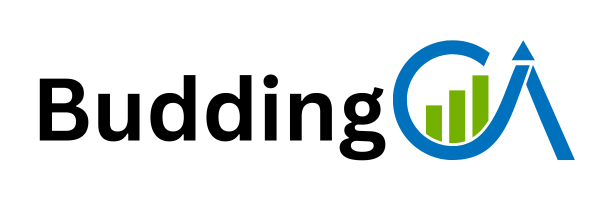Financial due diligence is a highly specialised area. It involves an in-depth analysis of financial data, ensuring that businesses are in sound financial health before any major transaction like mergers, acquisitions, or investments. As the finance sector continues to grow, the competition for roles in this domain has intensified. Whether you’re a seasoned financial analyst or just starting your career in Financial Due Diligence, one thing remains certain – your resume needs to stand out.
Incorporating the right keywords into your resume is one of the most effective ways to achieve this. Applicant Tracking Systems (ATS) are widely used by hiring companies to filter resumes, and the right keywords can help ensure your resume gets noticed. This article will explore the essential keywords every Financial Due Diligence professional should use to make their resume both ATS-friendly and appealing to hiring managers.
Why Keywords Matter in Financial Due Diligence Resumes
ATS Optimization
Most large companies use Applicant Tracking Systems (ATS) to streamline the hiring process. These systems scan resumes for specific keywords that align with the job description. If your resume lacks these relevant terms, it may never make it to a human recruiter’s desk.
Therefore, optimising your resume with the correct keywords is crucial to ensure it passes through ATS filters. Once it does, it will be in a much better position to grab the attention of hiring managers.
Showcasing Your Expertise
Financial Due Diligence requires a specific set of skills and knowledge, from financial modelling to regulatory compliance. Keywords are an efficient way to demonstrate your expertise in these areas. By using the right terms, you show potential employers that you are not only familiar with the terminology but also have hands-on experience.
Creating a Focused Profile
Using keywords also helps in positioning yourself more effectively within your resume. Keywords give a clear signal to hiring managers about the areas you specialise in. This allows them to quickly identify your strengths and match them with the job requirements.
Essential Keywords to Include in Your Financial Due Diligence Resume
To make your resume shine, it’s important to incorporate the right keywords in various sections such as your skills summary, work experience, and educational qualifications. Below, we break down the most important keywords in Financial Due Diligence, categorised based on their relevance.
Analysis and Valuation
A critical component of Financial Due Diligence is analysing the financial health of a company and valuing it for investment or acquisition purposes. These keywords reflect your ability to conduct detailed analyses.
- Accretion/Dilution Analysis
- Cash Flow Analysis
- Cash Flow Forecasting
- Discounted Cash Flow (DCF)
- Net Present Value (NPV)
- Internal Rate of Return (IRR)
- Earnings Before Interest, Taxes, Depreciation, and Amortization (EBITDA)
- Equity Valuation
- Business Valuation
Tip: In your experience section, include specific instances where you’ve performed these analyses. For example: “Performed discounted cash flow (DCF) and NPV analyses to assess the value of a potential acquisition target.”
Financial Reporting and Documentation
This section of your resume should highlight your ability to prepare and review financial reports, which is a vital part of the due diligence process.
- Due Diligence Reporting
- Financial Due Diligence Report Preparation
- Financial Statement Analysis
- Regulatory Compliance Reporting
- P&L Scrutiny
- Financial Documentation
Tip: Use these keywords when detailing your responsibilities in prior roles. For example: “Prepared comprehensive due diligence reports, including regulatory compliance documentation and P&L scrutiny.”
Risk Assessment and Forensic Techniques
Risk management and identifying potential financial risks are central to the due diligence process. Forensic accounting also plays a significant role in uncovering any fraudulent or irregular financial practices.
- Credit Risk Assessment
- Forensic Accounting
- Quantitative Risk Modelling
- Covenant Testing
- Liquidity Risk Management
- Regulatory Risk Assessment
Tip: If you have experience in forensic accounting or managing risk, highlight your achievements. For example: “Led forensic accounting reviews that uncovered potential misstatements of ₹10 crore in receivables.”
Forecasting and Modelling
Projections about the future financial performance of a company are crucial in financial due diligence. Keywords related to financial forecasting and modelling show that you are adept at predicting future outcomes based on past data.
- Financial Forecasting
- Financial Projections
- Scenario Analysis
- Pro Forma Financials
- Sensitivity Analysis
Tip: Include examples where you’ve used forecasting models to drive decision-making. For instance: “Developed detailed financial projections and sensitivity analyses to guide investment decisions.”
Compliance and Governance
Compliance with regulatory standards such as IFRS (International Financial Reporting Standards) and US GAAP (Generally Accepted Accounting Principles) is non-negotiable in the Financial Due Diligence process.
- IFRS / US GAAP Compliance
- Governance Compliance
- Internal Control Evaluations
- Audit Support
Tip: Demonstrate your compliance expertise by mentioning any specific regulations you’ve worked with. Example: “Conducted an IFRS convergence review to ensure compliance with international reporting standards.”
Transaction Advisory and Structuring
Advising on deal structures and supporting mergers and acquisitions (M&A) activities is an essential part of the due diligence role. These keywords highlight your ability to manage complex transactions.
- Mergers & Acquisitions (M&A)
- Deal Structuring
- Transaction Advisory Services
- Post-Merger Integration
- Leveraged Buyouts (LBO)
Tip: In this section, focus on your ability to guide transactions through successful completion. Example: “Advised on deal structuring for a ₹200 crore M&A deal, including post-merger integration strategies.”
Performance and Efficiency Metrics
In Financial Due Diligence, it’s important to show how you contribute to improving the financial efficiency of an organisation. These keywords focus on the operational side of financial performance.
- Operational Efficiency Review
- Working Capital Efficiency
- Return on Investment (ROI)
- Return on Equity (ROE)
- Performance Benchmarking
Tip: Include examples where your work directly improved the financial health of a company. Example: “Improved working capital efficiency, freeing up ₹25 crore for reinvestment in strategic initiatives.”
How to Incorporate Keywords into Your Financial Due Diligence Resume
Now that we’ve identified the crucial keywords, the next step is integrating them into your resume in a way that captures your skills and achievements effectively.
Profile or Summary Section
This is where you get the chance to quickly summarise your expertise. By using relevant keywords, you can position yourself as a highly qualified candidate right from the start.
Example Summary:
“Experienced Financial Due Diligence professional with a proven track record in financial forecasting, business valuation, and M&A advisory. Expert in conducting quantitative risk modelling and IFRS compliance reviews for multi-billion-dollar transactions.”
Skills Section
Listing your technical skills is essential for ATS systems to scan your resume. Use this section to highlight the keywords you want to be recognised for.
Example Skills:
- Financial Modelling (DCF, NPV, IRR)
- Risk Assessment (Credit Risk, Liquidity Risk)
- Mergers & Acquisitions (M&A)
- Due Diligence Reporting & Documentation
- Regulatory Compliance (IFRS, GAAP)
Experience Section
For each role, include a few bullet points demonstrating how you used the key skills and achieved measurable outcomes. Incorporate relevant keywords naturally into your job descriptions.
Example Experience:
- Led a team of analysts to perform due diligence reporting for a ₹1,000 crore M&A deal, including financial statement analysis and regulatory compliance review.
- Conducted credit risk assessments and liquidity analysis for potential investment opportunities, resulting in strategic acquisitions worth over ₹500 crore.
- Developed financial projections and sensitivity analyses, informing key strategic decisions for a leveraged buyout (LBO) transaction.
Education and Certifications
Highlight any relevant certifications and courses that further demonstrate your expertise. Also, make sure to link any relevant keywords to your qualifications.
Example:
- Chartered Financial Analyst (CFA) – Focus on financial analysis, investment modelling, and risk assessment.
- Certified Public Accountant (CPA) – Specialisation in IFRS compliance and audit support.
Conclusion
A well-crafted resume is your ticket to success, especially for specialised fields like Financial Due Diligence. By strategically using relevant keywords in your resume, you ensure that both ATS systems and hiring managers can immediately recognise your skills and experience.
Remember, your resume should not just be a list of past jobs but a reflection of your abilities to drive financial success through detailed analysis, compliance knowledge, and strategic advisory. So, make sure to integrate these essential keywords and position yourself as a top candidate for Financial Due Diligence roles.
Calling all CA dreamers!
🔴 Are you tired of searching for the perfect articelship or job?
Well, fear no more! With 10K+ students and professionals already on board, you don't want to be left behind. Be a part of the biggest community around! Join the most reliable and fastest-growing community out there! ❤️
And guess what? It’s FREE 🤑
✅ Join our WhatsApp Group (Click Here) and Telegram Channel (Click Here) today for instant updates.




